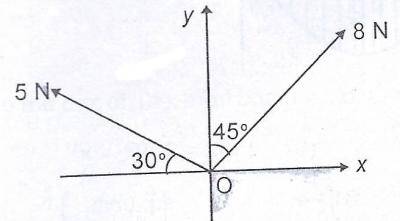Given that x∗y=x+y2,x∘y=x2y and (3∗b)∘48=13, find b, where b > 0.
8
6
5
4
Correct answer is C
(x∗y)=x+y2
(3∗b)=3+b2
x∘y=x2y
(3+b2)∘48=(3+b2)248=13
(3+b)248×4=13
(3+b)2=48×43=64
b2+6b+9=64⟹b2+6b+9−64=0
b2+6b−55=0⟹b2−5b+11b−55=0
b(b−5)+11(b−5)=0⟹(b−5)=0 or (b+11)=0
Since b > 0, b - 5 = 0
b = 5.
Given that 3x+4y+6=0 and 4x−by+3=0 are perpendicular, find the value of b.
4
3
13
14
Correct answer is B
When you have two lines, y1,y2, perpendicular to each other, the product of their slopes = -1.
3x+4y+6=0⟹4y=−6−3x
∴y=−64−34x
dydx=−34
Also, 4x−by+3=0⟹by=4x+3
y=4bx+3b
dydx=4b
−34×4b=−1⟹4b=43
b=3
sin2θ
sec2θ
tan2θ
cos2θ
Correct answer is D
(1+sinθ)(1−sinθ)=1−sinθ+sinθ−sin2θ
=1−sin2θ
Recall, cos2θ+sin2θ=1
∴1−sin2θ=cos2θ.
If 15−y=25(54−2y), find the value of y.
4
2
-4
-5
Correct answer is B
15−y=25(54−2y)
⟹5y=(52)(54−2y)
5y=52+4−2y
Comparing bases, we have
y=6−2y
3y=6⟹y=2
WAEC Subjects
Aptitude Tests
